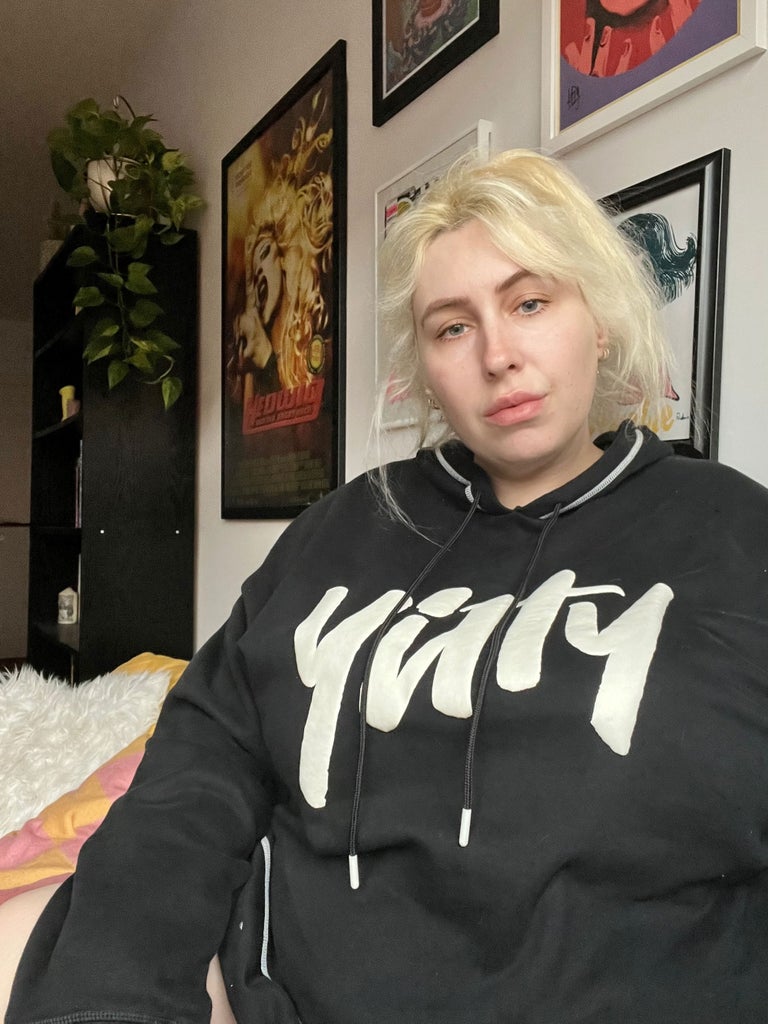When Kim Kardashian launched Skims in 2019 it felt like a natural progression for the reality star turned businesswoman. Kardashian had already taken us through (some) of the alterations she’d made to her body, such as taping up her tits for a perkier bust, embracing contour as a makeup skill not just for drag queens but for an everyday beat, and wearing waist trainers when working out. Flogging her own brand of shapewear in sizes XXS to 4X was a shrewd money-making move.
This week Lizzo, who has built her personal brand on loving your body as it is, launched her own brand of shapewear in collaboration with Fabletics, called Yitty. Most notable about Lizzo’s line is that it runs up to a size 6X and is dubbed a ‘liberation’ in a way that makes all bodies feel included, rather than restricted by supportive undergarments.
As a fat woman, even the word ‘shapewear’ sends shudders down my spine and along my belly. I remember spending weeks upon weeks in sixth form – when I was only a size 14 – wearing control-top tights and throwing up often from the constriction. I remember being 22 and wearing size 18 control pants in 30-degree heat while on holiday in New York. In my younger years, more often than not, I would fall asleep with red marks across my stomach, sternum and thighs where the shapewear had been, only to wake up the next day and layer it all on again.
This was before fat liberation had hit the high street. In 2015 we were only just beginning to question the body image standards set by brands and the media. A younger, more insecure me had not yet committed to body positivity and was still punishing herself for being bigger with restrictive garments and restrictive eating.
So fat-positive shapewear feels like an oxymoron to this 28-year-old woman who actively avoids buying shapewear for fear of falling back into the cycle of wearing it daily, avoiding the realities of my own body. But as a size 24 and living, as we do, in a sizeist society, the temptation never leaves.
My trepidation should not be considered a critique of Lizzo but a worry that I’m sure is felt by other plus-size women who have ever struggled with self-image. And it would be unfair to unload these concerns onto her brand without trying it first. Which is why, as a stand-up woman of my word, I gave it a go (shout out to the influencer team at Fabletics for gifting me these garments).
The first Yitty drop includes three categories: Nearly Naked, your more traditional, seamless undergarments that are meant to smooth your visible belly outline and lift your tits; Mesh Me, fashion-forward shapewear that can be worn under clothing or on its own; and Major Label, everyday loungewear pieces that offer structure and support.
I received a Nearly Naked bodysuit, as well as shorts and a cropped hoodie from Major Label, and requested all three in my traditional size: 3X.
This was an error on my part because as any fat person knows, it is vital to check your measurements against a brand’s sizing charts in order to get the right fit. After reading the numbers on the packaging I realised that the Nearly Naked line only goes up to a 5X, which meant I probably needed something bigger than my regular 3X.
With sizes varying vastly between brands, especially for plus-size garments, it’s usually second nature for me to know that I could be a size 22 at one brand, 26 at another and, surprisingly, fit into an 18 in some styles elsewhere. When buying from a new brand, size charts are imperative to ensure that your size is actually your size.
As an openly body-conscious fat liberationist, trying to pull on this bodysuit before checking the size chart was disheartening and on the verge of triggering. Especially as the garment comes in that Skims and Poster Girl-style stretch fabric, where the piece looks ridiculously tiny before trying on. I felt conned as I tried to pull the material over my thighs, unable even to attempt getting it over my belly and butt. Struggling to fit into something that’s supposedly made with your specific body needs in mind is a special kind of cruel, especially when aligned with the torment that shapewear put me through as a younger woman.
I felt conned as I tried to pull the material over my thighs, unable even to attempt getting it over my belly and butt.

What this fat person realised is that, with Yitty’s 5X and 6X sizes running smaller than usual, the brand is pretty much faking an inclusivity that isn’t there.
It would be unfair to blame Lizzo herself – she is not, after all, the clothing manufacturer or the size chart creator – but I do hope that later iterations of her line position inclusivity at the forefront of garment creation and not just in its branding.
Surprisingly, the shorts and hoodie that I tried on after this failure fit perfectly. Both in a 3X. This sizing inconsistency makes me wonder if the problem is a short-sighted mistake and can perhaps be resolved in a later release.
But I can’t shake the question I’ve had all along: can shapewear ever truly be body positive? In my humble opinion, the answer is a big fat no. Especially when a bodysuit is priced at £69.
Like what you see? How about some more R29 goodness, right here?
Shapewear & Body Positivity: How Do They Coexist?